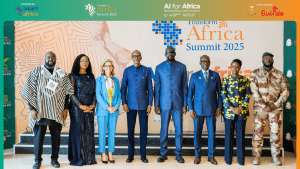Libyan PM’s wide ranging interview, from elections to Israel

In an interview with Asharq Al-Awsat published on August 19th, the head of Libya’s Government of National Unity discussed elections, foreign relations, militia dismantling, and the potential use of elections in Libya to overcome political divisions and deadlock.
Abdul Hamid al-Dbeibeh gives this interview just days before a political roadmap aimed at facilitating elections to resolve political deadlock is due to be discussed at a UN Security Council meeting.
The Government of National Unity is based in the west capital of Tripoli, and backed by many foreign governments and the UN. They are rivalled by a parallel government in the east of Libya headed by Osama Hammad, aligned with the Libyan National Army, and backed by foreign governments including Russia and Egypt.
The governance of Libya was split after the 2011 overthrow of dictator Moammar Gadhafi.
On the topic of the political roadmap, Dbeibah reaffirmed his belief that “elections will renew legitimacy for the main political bodies,” and stressed the importance of an elected legislature to end the institutional confusion caused by the parliament’s unilateral decisions.
He also spoke of the importance of fair and enforceable electoral laws- Libyan elections are currently delayed not due to a lack of preparation but an absence of political agreement on electoral laws.
When asked about the 2017 draft constitution, Dbeibah reaffirmed his support for putting it to a referendum as the fastest way to end what he describes as the constitutional vacuum.
Dbeibah confirmed the U.S’s commitment to a stronger partnership and economic opportunities between the nations, and denied the claim that the $60 billion investment plan is a scheme to win U.S backing.
He describes the investments in infrastructure, oil and energy as designed to diversify Libya’s economy, specifically stating that they are not political bargaining chips.
This is following a visit from Massad Boulos, the U.S Senior Advisor to Africa, who also recently visited General Khalifa Haftar of the eastern government near Benghazi.
Also on the topic of Libya’s foreign relations, Dbeibah clarified that “there is no desire or effort to normalize with Israel,” and completely denied the reports of Libya hosting Palestinians from Gaza, stating that he supports international action to protect Palestinian people and their right to reside in Gaza rather than forcibly replace them.
Libya is already strained under huge migration numbers, primarily from the neighbouring country Sudan which is going through a violent civil war triggering thousands of civilians to flee. The influx of migrants has affected the availability of local aid in certain areas, including but not limited to medical and health services.
Furthermore on foreign relations, in his interview Dbeibah described relations with Turkey as “excellent” and stated that with Russia their relations are “gradually improving.”
The interviewer asked Dbeibah about the timing of his plan to dismantle armed militias, and drew attention to the criticism that many commanders in his own forces previously belonged to armed groups.
Dbeibah responded that the plan for dismantling militias was a national project prompted by militias having grown stronger than state institutions. He explained that one of the pathways available to the militias they are dismantling is integration into state institutions.
Dbeibah did not clarify if he will be running in national elections if and when they are held when asked by the interviewer, stating that it will depend on circumstances at the time.
Asharq Al-Awsat/Maghrebi
Want to chase the pulse of North Africa?
Subscribe to receive our FREE weekly PDF magazine














